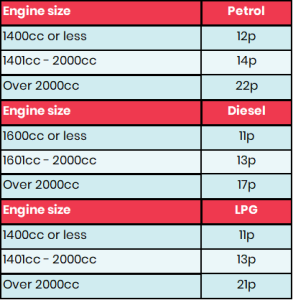Client news update - June 2025
In this month’s news, we will be covering key tax and financial updates that may impact you and your business. Topics include HMRC late payment interest rate adjustments and early tax return trends as well as the upcoming requirements for Making Tax Digital (MTD), the latest on ISA allowances, and government actions around National Living Wage enforcement.
If you have any questions about any of the below please do get in touch with your Old Mill adviser in the first instance, or alternatively click here…

10th June 2025
-
HMRC cuts late payment interest rate to 8.25%
HMRC has reduced late payment and repayment interest rates from 28 May following the 0.25% cut in the base rate.
The Bank of England cut the base rate to 4.25% on 8 May, triggering a 0.25% cut in HMRC interest rates which are pegged to the base rate.
From 28 May, the late payment interest rate was cut to 8.25% from 8.5%, which was the highest rate charged since February 2000.
The repayment interest rate has also been cut to 3.25% from 3.5% from 28 May.
HMRC late payment interest is set at base rate plus 4%. Repayment interest is set at base rate minus 1%, with a lower limit – or ‘minimum floor’ – of 0.5%.
Following the cut to the base rate David Bharier, Head of Research at the British Chambers of Commerce said:
‘Many firms, desperate for financial respite, will be keen to see further rate cuts in the months ahead.
‘National insurance hikes, alongside other cost pressures, are already having an impact, including increased prices, hiring freezes, and reduced investment.
‘The next few months are likely to remain volatile and the full impacts of a global trade war are still uncertain. Businesses will be looking to government to provide stability and avoid any further pain.’
Internet link: GOV.UK BCC website
-
Record numbers file Self Assessment in first week of new tax year
Almost 300,000 people filed their tax return in the first week of the new tax year, setting a new record, HMRC has revealed.
Self Assessment taxpayers can submit their tax return for the 2024/25 tax year between 6 April 2025, the first day of the new tax year and the deadline on 31 January 2026.
This year 299,419 filed in the first week, up 28,503 compared to the 270,916 people who did so in 2020.
There were 57,815 early filers on 6 April, which was lower than the 67,870 people who did so in 2024.
HMRC is encouraging people to file early so they know what tax they owe sooner, plan for any payments in advance and can avoid the stress of leaving it until January.
Myrtle Lloyd, HMRC’s Director General for Customer Services, said:
‘Filing your Self Assessment early means you can spend more time growing your business and doing the things you love, rather than worrying about your tax return.
‘You too can join the thousands of customers who have already done their tax return for the 2024/25 tax year by searching ‘Self Assessment’ on GOV.UK and get started today.’
Internet link: HMRC press release
If we don’t already manage your Personal Tax return and you’d like help with it speak to your usual Old Mill contact.
-
Almost half of sole traders unprepared for Making Tax Digital (MTD) changes
Almost half of UK sole traders feel unprepared for upcoming Making Tax Digital (MTD) for Income Tax changes, according to research conducted by IRIS Software.
The new MTD rules mandate digital record-keeping and quarterly Income Tax updates starting April 2026 and non-compliance can lead to significant penalties.
The study found that almost one in three sole traders have never heard of MTD.
MTD for Income Tax will require self-employed individuals, landlords and small businesses earning over £50,000 to keep digital financial records and submit quarterly updates using compatible software from April 2026. The threshold drops to £30,000 in 2027 and to £20,000 in 2028.
The changes could place a significant burden on business owners, who will be required to submit at least five updates to HMRC each year.
Mark Chambers, Managing Director at IRIS Accountancy, said:
‘These findings highlight an important moment of opportunity for the UK’s sole traders. With MTD just around the corner, there’s a real chance for businesses to modernise their financial processes, unlock efficiencies, and gain better visibility of their income and expenses.
‘It’s encouraging to see that nearly a quarter feel ready to meet the requirements, but that leaves a significant portion not experiencing the benefits of digitalised tax reporting that compliance will bring.’
Internet link: IRIS Software website
-
Chancellor confirms ISA allowance won't be cut
Chancellor Rachel Reeves has confirmed that the annual tax-free ISA allowance won’t be reduced from £20,000.
Ms Reeves stated that she ‘absolutely wants to preserve’ the £20,000 tax-free investment people can make every year.
The Chancellor is set to launch a consultation into how the UK ISA market could be overhauled, and did not rule out changes to cash ISAs.
The overall annual savings limit remains at £20,000 for 2024/25 and 2025/26. Investors are allowed to invest in a cash ISA, an investment ISA, an Innovative Finance ISA or a combination of the three, subject to not exceeding the overall annual investment limit.
Investors are able to transfer their investments from a stocks and shares ISA to a cash ISA (or vice versa).
The Chancellor said:
‘I do want people to get better returns on their savings whether that is a pension or their everyday savings. At the moment a lot of money is put into cash or bonds when it could be invested in equities or stock markets and earn a better return from it.’
Internet link: CityAM article
-
HMRC names and shames over 500 employers for failing to pay National Living Wage (NLW)
HMRC has named and shamed over 500 UK employers for failing to pay the National Living Wage (NLW) or the National Minimum Wage (NMW).
The employers will now be forced to repay over £7.4 million to nearly 60,000 workers who had been left out of pocket.
Employers who left nearly 60,000 workers over £7.4 million out of pocket must now repay their employees.
The rates for NLW increased to £12.21 an hour on 1 April and the government says this put £1,400 into the pockets of full-time workers on NLW.
Justin Madders, Minister for Employment Rights, said:
‘There is no excuse for employers to undercut their workers, and we will continue to name companies who break the law and don’t pay their employees what they are owed.
‘Ensuring workers have the support they need and making sure they receive a fair day’s pay for a fair day’s work is a key commitment in our Plan for Change. This will put more money in working people’s pockets, helping to boost productivity and ending low pay.’
Internet link: GOV.UK
-
HMRC Small firms held back from energy efficiency by upfront costs
Small firms are keen to become more energy efficient, but they are being held back by the high upfront cost of green investment, according to the Federation of Small Businesses (FSB).
The FSB has outlined a path to help cut carbon emissions and costs for small firms in a report.
The FSB’s report found that small businesses are keen to make investments in sustainability and to become more energy efficient through reducing their carbon footprints.
The business group says small firms across the country should be given access to the Business Energy Advice Service, which offers tailored support including free energy assessments and match-funded grants for improvements.
It also says that future solar panel grant support offered by the government should be available to commercial properties as well as domestic properties.
The current VAT zero rate for installing energy-saving materials should include commercial premises, the FSB adds.
Tina McKenzie, Policy Chair at the FSB, said:
‘The incredible inventiveness and entrepreneurialism among the small business community will be a powerful tool when it comes to cutting carbon, growing the green economy, and hitting the country’s net zero targets – if small businesses are given the tools and support they need to thrive.
‘The sustainable economy has absolutely enormous potential for growth in coming years. This is growth that we as a country need, and small firms must be given the chance to benefit from the opportunities on offer.’
Internet link: FSB website
-
Advisory fuel rates for company cars
New company car advisory fuel rates have been published and took effect from 1 June 2025.
The guidance states: ‘You can use the previous rates for up to one month from the date the new rates apply’. The rates only apply to employees using a company car.
The advisory fuel rates for journeys undertaken on or after 1 June 2025 are:

HMRC guidance states that the rates only apply when you either:
- Reimburse employees for business travel in their company cars
- Require employees to repay the cost of fuel used for private travel.
You must not use these rates in any other circumstances.
The Advisory Electricity Rate for fully electric cars is 7p per mile.
If you would like to discuss your company car policy, please contact us.
Internet link: GOV.UK AFR
-
HMRC cracks down on Limited Liability Partnership (LLP) liquidation schemes
HMRC has recently issued a new warning targeting tax avoidance schemes involving the liquidation of Limited Liability Partnerships (LLPs) to sidestep Capital Gains Tax (CGT). The announcement is particularly relevant to landlords and property investors, and if you’ve been involved in one of these schemes, it’s important to take advice.
Read the full article here:
If you have any questions about any of the above please do get in touch with your adviser in the first instance, or alternatively click here…
